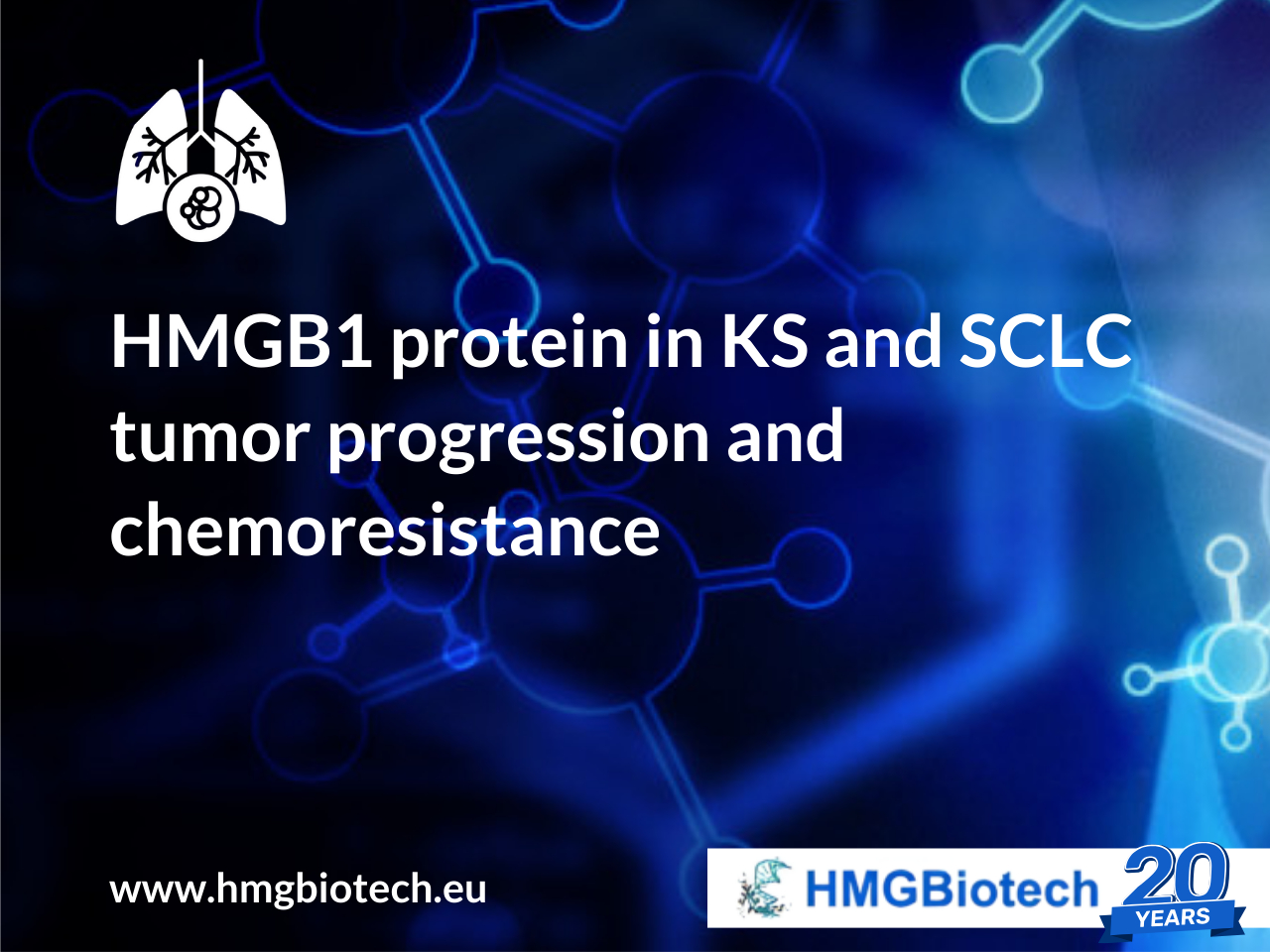Two recent studies shed light on how HMGB1 contributes to Kaposi’s sarcoma (KS) and small cell lung cancer (SCLC), revealing new potential therapeutic strategies for cancer.
High-Mobility Group Box 1 (HMGB1) protein is increasing seen as a main regulator in shaping the tumor microenvironment and promoting chemoresistance.
World Cancer Day, occurring on the 4th of February, raises awareness on cancer prevention and researches to investigate new therapeutic approaches.
HMGB1 in Kaposi’s Sarcoma: Modulating the Tumor Microenvironment
Research on Kaposi’s sarcoma associated herpesvirus (KSHV)-infected endothelial cells demonstrates that KSHV infection induces HMGB1 secretion, which in turn promotes the secretion of pro-tumorigenic cytokines and growth factors, including VEGF, PDGF-AA, and CXCL5. These factors enhance angiogenesis, tumor survival, and immune evasion.
Notably, HMGB1 knockout (KO) cells show reduced viability, suggesting that targeting HMGB1 could disrupt the KS tumor microenvironment and provide a new therapeutic avenue for KS treatment.
HMGB1 in small cell lung cancer: Driving chemoresistance via nucleophagy
In small cell lung cancer (SCLC), HMGB1 contributes to chemoresistance through a mechanism involving PARP1-related nucleophagy. The study reveals that HMGB1 enhances PARP1-LC3 binding via PARP1 PARylation, facilitating PARP1 degradation and allowing cancer cells to evade DNA damage-induced cell death.
This mechanism diminishes the efficacy of chemotherapy, but can be countered by blocking PARP1-LC3 interaction or using PARP inhibitors (PARPi). These findings suggest that HMGB1 could serve as a biomarker for predicting PARPi response, and that combining chemotherapy with PARP inhibitors may overcome chemoresistance in SCLC.
These insights position HMGB1 as a promising target for novel cancer therapies, whether by disrupting tumor-supportive signaling in KS or enhancing chemosensitivity in SCLC.
HMGBiotech Srl provides comprehensive information to facilitate informed decision-making for researches with HMGB1.
Contact us for your pre-sales questions about HMGB1
Read the full articles about the studies:
https://pubmed.ncbi.nlm.nih.gov/38159843/
https://www.frontiersin.org/journals/microbiology/articles/10.3389/fmicb.2023.1202993/full

